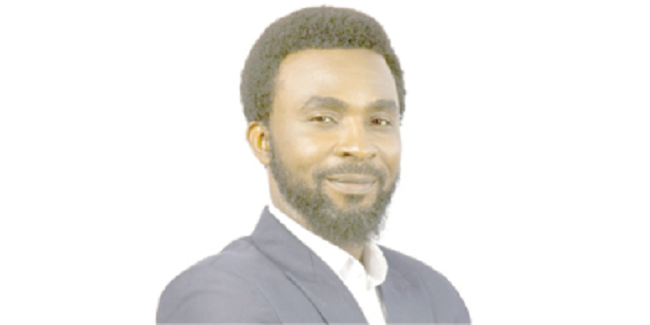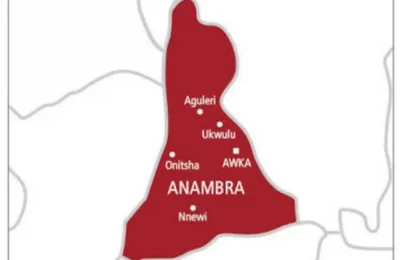
In this interview with IFEDAYO OGUNYEMI, Executive Director, Ominira Initiative, who is also the convener of the Driving Prosperity through Property Rights (DPPR) project, Lanre Elufisan, speaks on issues surrounding property rights in Nigeria and plans to reform land administration in the country.
There are so many challenges and bottlenecks with regard to property rights in Nigeria. What can be done to ease these burdens?

Indeed, the issue of property rights, particularly the registration of property titles, is as difficult for investors as it is for Nigerians. The procedures and cost of registering your properties anywhere in the country are cumbersome. This discourages people and hinders investment. In fact, it is connected to why the nation is entrapped in poverty today. No country that is serious about creating wealth lags behind in securing property rights as much as we do. Imagine Nigeria ranking 117 out of 125 countries in the 2023 International Property Rights Index. That says a lot about property rights in the country.
We have allowed bureaucratic hurdles to create bottlenecks and inefficiencies in land transfer, registration, and ownership. These barriers significantly hinder our economic progress, making land ownership complex. Without legal land papers, no one truly owns the land and cannot draw equity from it. Therefore, to harness the benefits derived from land in Nigeria, we need to transform our land into a capital asset through effective titling, adoption of technology to ease land registration processes, and establishing laws to secure property rights.
What informed the Driving Prosperity through Property Rights (DPPR) programme?
As a policy research and advocacy organisation with the mission to research and advance solutions to Africa’s socio-economic issues, beginning in Nigeria, we are always on the lookout for the areas where we can make the most impact.
Do you know that less than 5% of land in Nigeria has been legally registered? Can you imagine a vast country with over 200 million people having less than 5% of its land legally owned? That’s a big concern for us as a nation because that’s a huge dead capital that we are leaving untapped, making it difficult for Nigerians to maximise the economic benefits of their lands and for foreigners to be encouraged to invest in properties. This explains why our housing sector is underdeveloped. Overall, the country’s poor state of property rights clearly has a negative impact on the ease of doing business and our economic freedom and growth.
One strong theme that has surfaced from your programme is the plan to reform land administration in Nigeria. How do you and your team plan to carry this out?
Reforming land administration is an idea that has existed for many years in Nigeria. Unfortunately, what we have seen is technical tinkering instead of a holistic reform of the Land Use Act. The law that has crippled property rights in the country and made land administration what it is today.
In 2009, when President Umaru Musa Yar’Adua was elected, he had a 7-point agenda that included Land Reforms. He wanted to change the existing land laws and ensure the emergence of land reforms that would optimise Nigeria’s growth through the release of land for commercial farming and other large-scale businesses in the private sector.
He couldn’t achieve that because his term was short-lived. However, the Presidential Technical Committee on Land Reforms which Yar’adua set up has produced a blueprint of recommendations over the years to improve land administration in the country. Unfortunately, nothing has come from it despite calls for reform. For us, we are not reinventing the wheel. We understand the significance of land reforms and the potential for our nation, so we are committed to advocating by improving public understanding of these issues and engaging stakeholders at the subnational and national level until something is done.
What, then, would the aforementioned translate to for young people seeking to own lands?
Reforming land administration in Nigeria can yield substantial benefits, including economic development, social stability, environmental sustainability, and governance. Clear and secure land tenure systems encourage both domestic and foreign investments. It can lead to better land management and agricultural practices because farmers are more likely to invest in improving their land and adopt modern farming techniques if they have legal certainty over their land.
Land reform can facilitate land as collateral for loans, opening up credit access. This is crucial for small-scale farmers and entrepreneurs who need access to credit to expand their businesses. For regions prone to communal conflicts, an effective land administration can significantly reduce disputes over land ownership. And reduced conflicts can enhance social cohesion and stability in our country today.
Secure land tenure can lift people out of poverty, contribute to rural development, and ensure that women and other marginalised groups have equal rights to own and inherit land. It will improve the efficiency of land transactions and reduce bureaucratic red tape and corruption. It will also make urban planning more effective and improve property tax collection, thereby increasing government revenues that can be reinvested into public services and infrastructure.
Many young people are acquiring land and other properties in Nigeria today with little or no knowledge of property rights. How does this programme bridge that gap?
From our observation, young people are minimally aware of property rights issues. Although many young people have heard about the activities of land-grabbers, also called omo onile in the South-West, news of the government taking land from people for various reasons. Yet many young and old people don’t know the right things to do to protect themselves from such. In fact, they rarely care about properly registering their landed properties. Instead, they rely on trust when engaging in land transactions and hope that the documents and everyone involved are reliable. Too often, this isn’t the case.
As part of our Driving Prosperity through Property Rights programme, we›re engaging stakeholders in the six South-Western states, organising technical workshops for the ministries of lands and housing, supporting landowners in registering their properties and educating the people through publications and online videos.
You interface with young people through the Ominira Initiative, some of whom have pursued careers in writing, trade and economy among others. What informed this drive and what have you deduced so far so good?
We have a goal to educate and inform the people, especially young people who make the most of our population. At Ominira Initiative, we have always conducted educational initiatives in the form of seminars, book donations to universities, fellowships, and even produced online videos, all targeting young people. We believe that by leveraging these initiatives, it is possible to shape attitudes and behaviours and empower young people to become active, informed participants in society, ultimately contributing to the evolution of public opinion in a desired direction.
What would you suggest as responses towards tackling the various socio-economic challenges and issues facing Nigeria today?
I believe the main socio-economic challenge we need to address urgently is poverty reduction. The way to do this is simply to develop our productivity as a nation in terms of developing our human capital and earning the financial capital required to enhance our development and provide jobs for our teeming youths. To achieve this, we must create a business environment that encourages productive entrepreneurship and attracts foreign investment.
Secondly, we need to get it right with security. Insecurity has been a bane of underdevelopment for us as a nation, and it has eaten deeply into the fabric of our society. For me, insecurity and ineffective law enforcement is a key measure of the failure of governance because the security of lives and property is the first responsibility of the government. Lastly, we need a leadership that will inspire the nation in the right direction and bring back trust and hope in the future of this nation by delivering good governance in an accountable and transparent manner. Everything else will fall in place from there.
Read Also: 7 money mistakes that keep you poor







